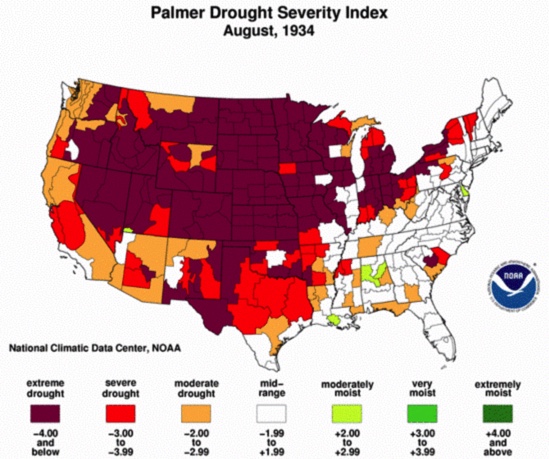
("Palmer Drought Severity Index" ndsu.edu)
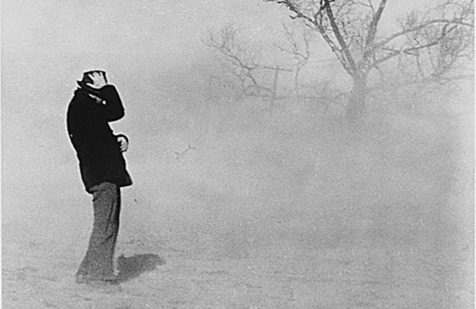
("Man Holding His Hat from the Dust Storm" fdrlibrary.marist.edu)

("Palmer Drought Severity Index" ndsu.edu)
The economy’s decline affected the Plain States even worse because of the "Dust Bowl” - a period of severe dust storms caused by poor farming practices, weather, and economic factors. WWI caused high demands for US food and cotton both at home and overseas. Farmers plowed more and more wild prairies for new fields. Timber companies clear-cut forests abandoning barren land. After WWI ended, demand for crops fell, and farmers abandoned stretches of empty fields. Prairie and tree root systems once protecting the land were gone. Winds blew away fertile topsoil leaving nothing but sand. Conditions worsened in the 1930s when rain stopped falling season after season.
"American farmers had been overplanting and poorly managing their land for years. So when drought conditions occurred between 1930 and 1936 in Texas, Oklahoma, Kansas, Nebraska, Colorado and New Mexico, the soil simply dried up and blew away. Poor farming practices included not only overplanting of crops, but overgrazing livestock." (great-depression-facts.com)
Huge dust storms formed, many a mile high and miles long. Mounds of sand covered and seeped into buildings. Livestock suffocated. People developed pneumonia. One observer stated, 1935 storms turned "afternoon brightness immediately into midnight darkness, and absolute zero visibility." (climate.ok.gov)
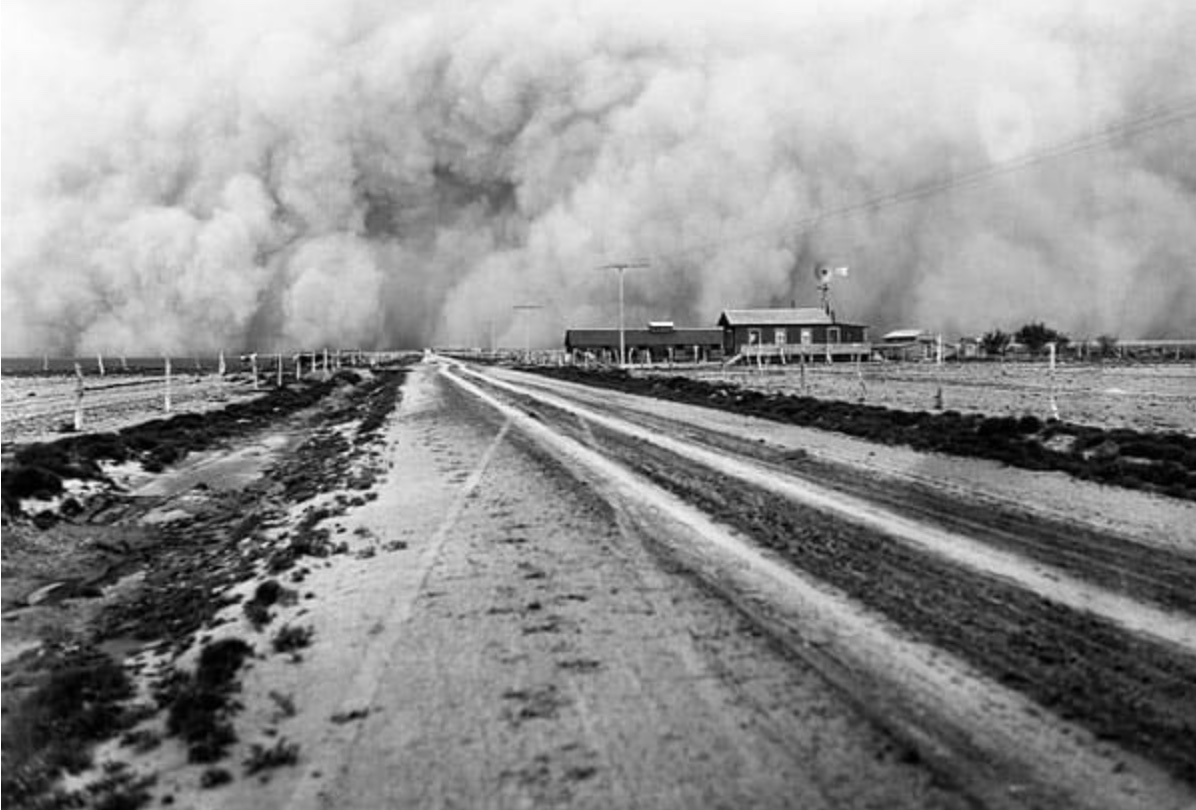
("Dust Storm Moving over Fields" facts.net)
Penniless and desperate by 1940, over 2.5 million people from the Dust Bowl region abandoned homes, carried what they could, and moved looking for a way to provide for their families.
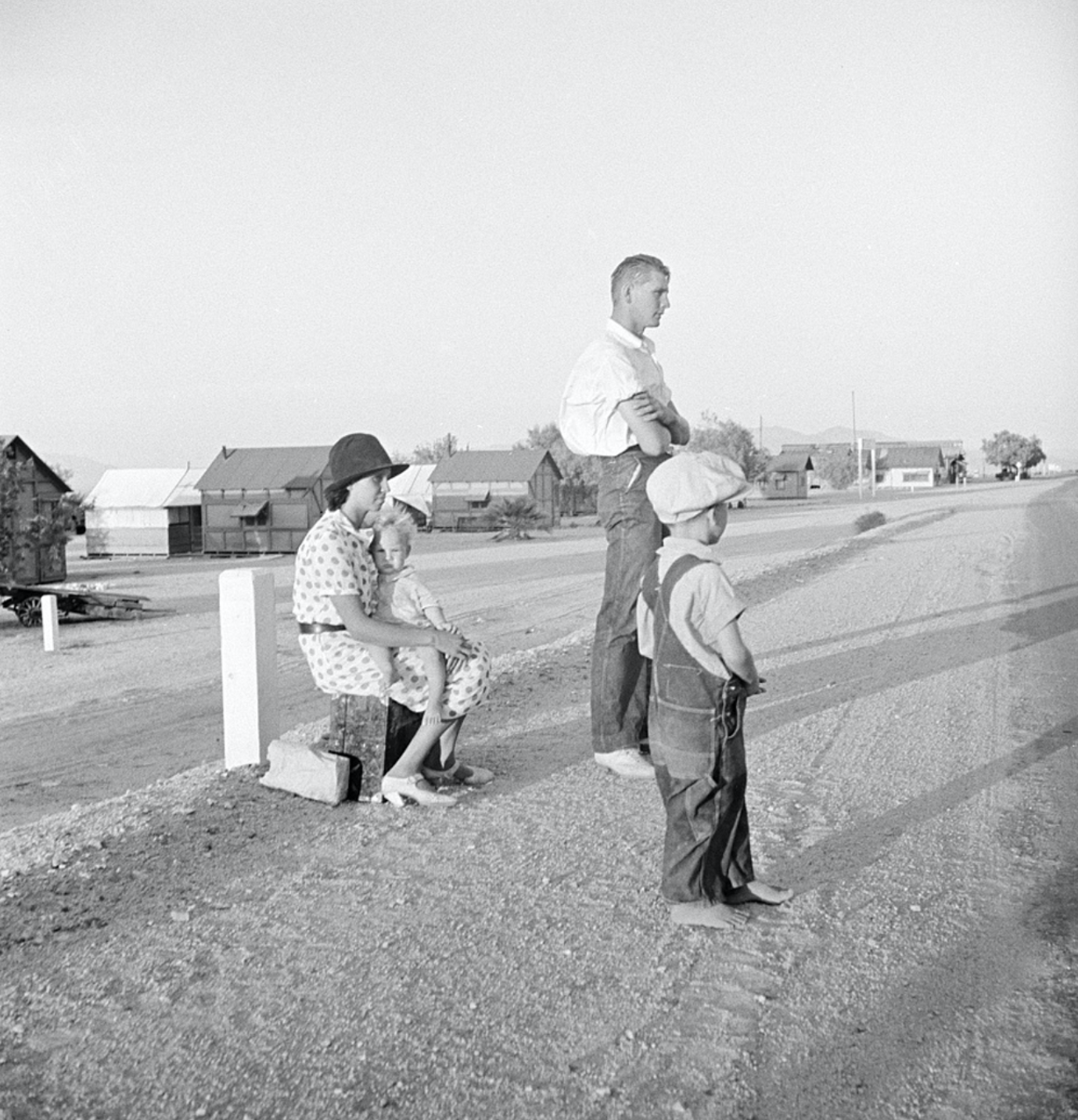
("Example of self-resettlement in California" loc.gov)
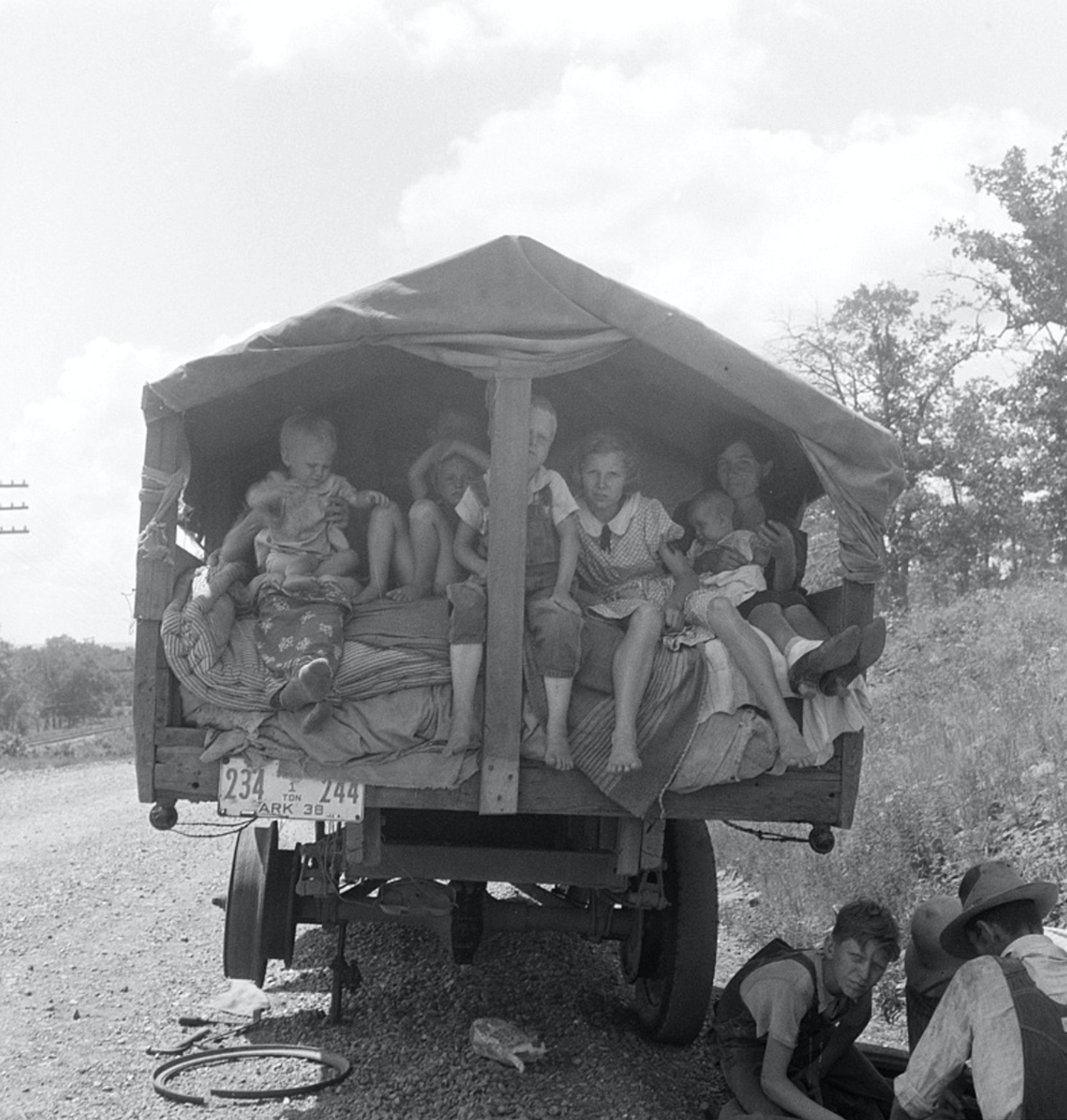
("On highway no. 1 of the 'OK' state" loc.gov)
"Many of the down-on-their-luck farmers migrated to the country's urban centers looking for work and a fresh start. In some cases, three and four generations of family members moved across the country together looking for food, shelter and work." (Great Depression)